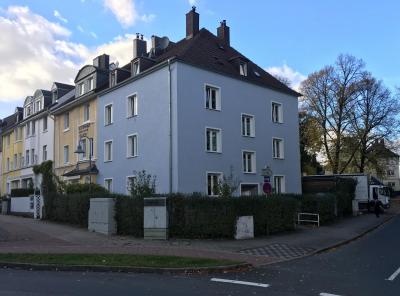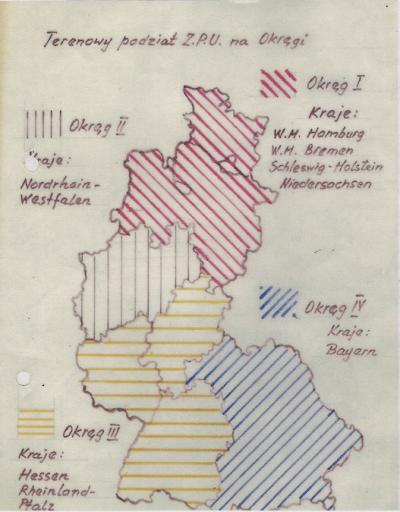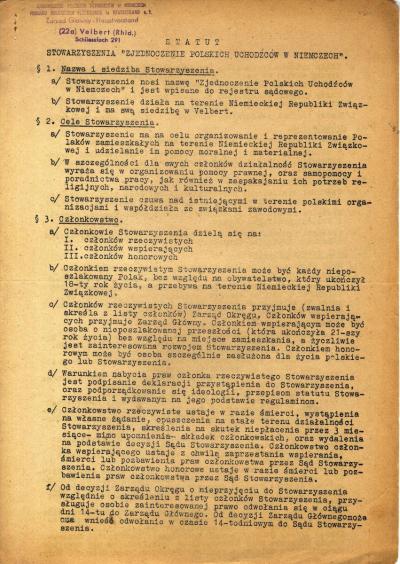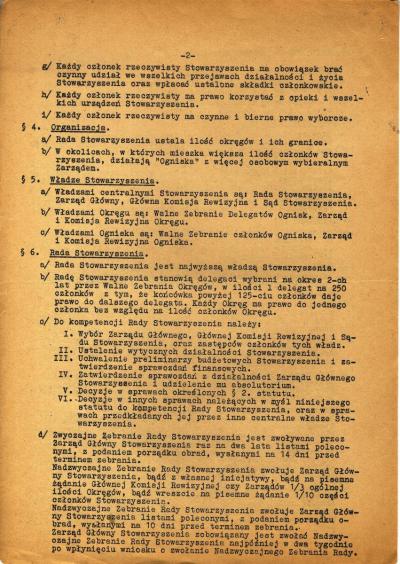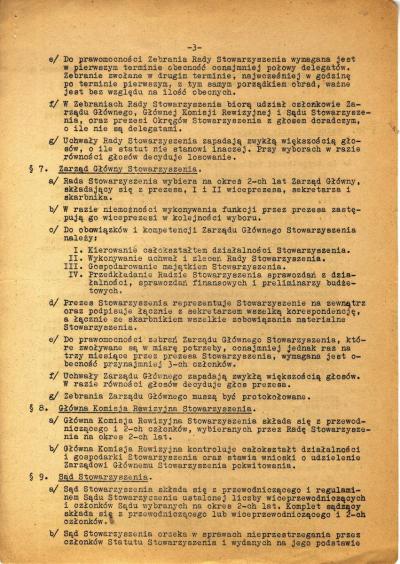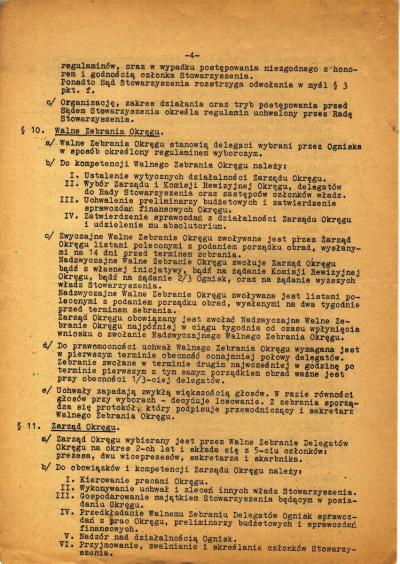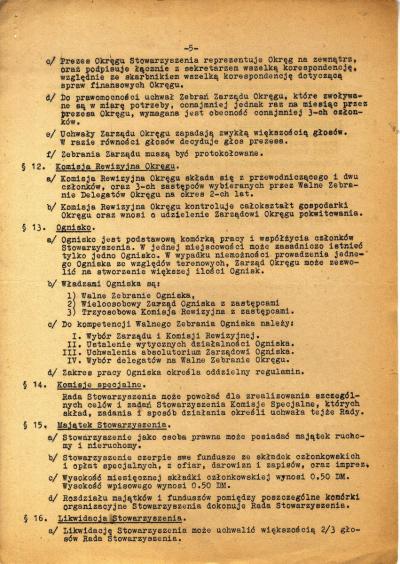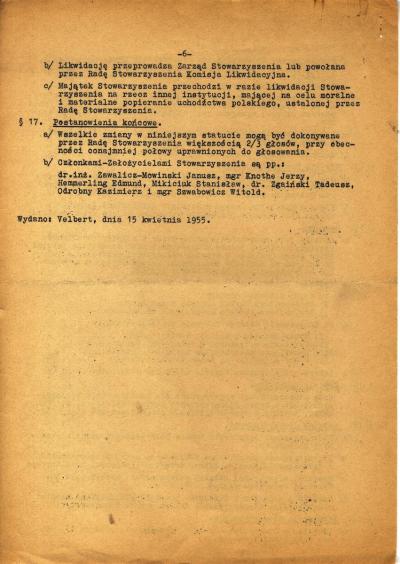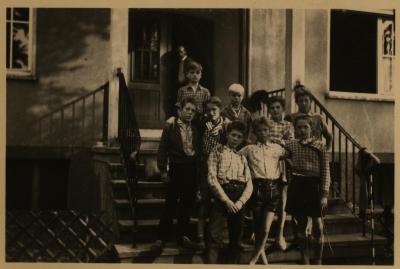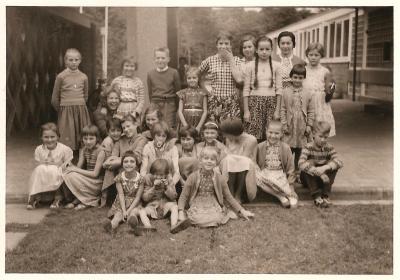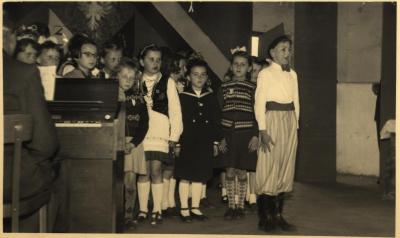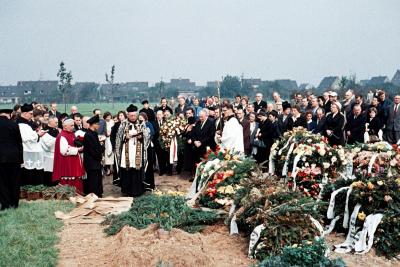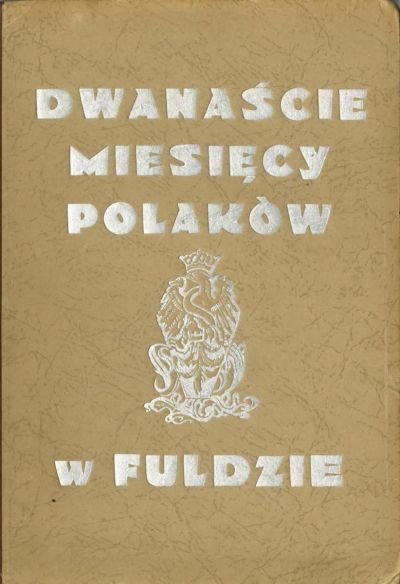The Association of Polish Refugees (ZPU)
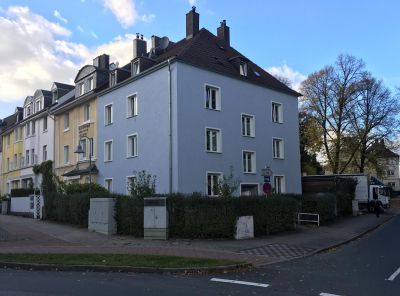
The Foundation and Aims of the Organisation
In 1949, the forum of the Zjednoczenie Polskiego Uchodźstwa Wojennego (ZPUW), the Association of Polish Refugees of War in Paris, was the initial driving force behind the creation of a new central organisation in the Federal Republic of Germany. The new organisation was created from the ruins of the former association. It was set up to mediate between Polish officials and representatives of political parties like the Stronnictwo Narodowe (National Party). the Stronnictwo Pracy (Workers' Party), the PPS (Polish Socialistist Party), the Stronnictwo Ludowe “Wolność” (“Freedom” People's Party), the followers of Piłsudski from the former ONR (National Radical Camp) and former servicemen. But above all, the new organisation would now be based on personal rather than institutional membership. In order to implement this idea, the executive committee of the ZPUW appointed an organising committee for the ZPU (Association of Polish Refugees in Germany), whose primary task was to regulate the responsibilities of the new organisation, define its territorial structure and arrange elections for the board of directors. The initiative was motivated by the idea of grassroots democracy. The Commission was composed of the following persons: Edmund Hemmerling, Władysław Jaroszewski, Master Jerzy Knothe, Stanisław Mikiciuk, Dipl.-Ing. Jerzy Skiba, Dr. Bolesław Janusz Zawalicz-Mowiński, Dr. Tadeusz Zgaiński and Dr. Stefan Zimmer. It agreed that local groups should be the basic level of the new organizational structure. The territorial division was to be based on four districts: a south-eastern one for Bavaria with its seat in Munich, a south-western one for Württemberg, Baden, Rhineland-Palatinate and Groß-Hessen with its headquarters in Herrenalb, a north-eastern one with its headquarters in Hanover and a north-western one with its headquarters in Essen. The Commission invited all existing organisations and their members to join the new association. Initiation meetings for the new organisation took place in Munich, Hanover, Karlsruhe and Essen.
The summer of 1951 was a time full of hope for the Polish refugees who stayed in the Federal Republic of Germany after the Second World War. This was partly due to the Federal Republic of Germany's admission into the Geneva Convention on Refugees, which defined the concept of refugees, their rights and duties, their legal status (including freedom of association), their living conditions, their earning potentials and social care. It also specified the types of documents and regulations governing their freedom to travel within Europe. At the same time, however, hopes were also raised for the creation of a central organisation that would contribute to improving the legal position and daily life of a large number of Poles.
The Organising Committee convened plenary meetings of delegates from all four districts in the Federal Republic of Germany. These took place at the beginning of July 1951 and primarily served to elect district representatives to the ZPU Council. After the Commission had made a number of other provisions, a meeting of the district representatives was finally convened in Höxter from 28th to 30th July 1951. This was the first meeting of the Association Council, during which it also elected its first Board of Directors. At the same time, this was the last meeting of the ZPU Organising Committee, which had been convened by the Paris Organisation. At the time the new organisation was founded, it contained a total of 117 local groups from four districts throughout West Germany. The number of members totalled around six thousand in the first few months of the year, rose to 6,649 in May 1953, but then fell steadily in the following years. The first chairman of the new organization was Major Dr. Bolesław Zawalicz-Mowiński. Stanisław Mikiciuk, Edmund Hemmerling and Kazimierz Odrobny were elected as his deputies. Witold Szwabowicz became the association's first secretary.
